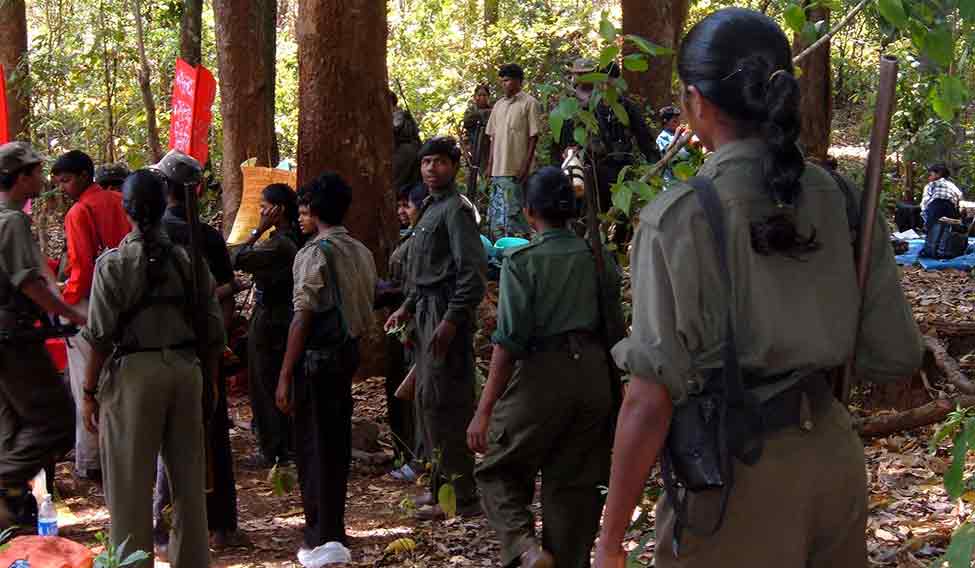Historian and Marxist ideologue Irfan Habib recently asked the CPI(M) to effect a course correction in its policy towards the Congress to check the rise of the BJP and the RSS. Former CPI(M) general secretary and Polit Bureau member Prakash Karat, however, was not convinced. “Such a proposal could not be accepted,” he wrote in the party mouthpiece People’s Democracy. While the traditional leftists rebuffed the renowned intellectual, the ultra leftists seem to be having a change of heart. The banned CPI (Maoists) is looking up to Marxist intellectuals like Habib to reach out to a wide swathe of people, especially the educated classes. Party general secretary Muppalla Lakshmana Rao, known popularly as Ganapathy, has written to his cadres to try and gain the support of left-leaning intellectuals, who are traditionally CPI(M) sympathisers, while not giving up the military option. Instead of deputing the party spokesperson to send the message, which is the usual practice, Ganapathy chose to write the letter himself, showing how serious the Maoists are.
People in charge of anti-Maoist operations said the change of heart was largely the result of strident anti-Maoist drives, especially Operation Green Hunt, which forced them to give up many of their strongholds in West Bengal, Bihar, Odisha and Jharkhand. “Our operations have forced Maoist guerrillas to vacate pockets in West Bengal, Bihar, Odisha and even parts of Jharkhand, which they used to dominate,” said a deputy inspector general of the CRPF, who is in charge of anti-Maoist operations in Jharkhand.
Mindless violence is among the main reasons why the Maoists have been losing popular support. It has forced their leadership to try and restructure the party and make it acceptable to the masses, but without compromising on the party’s core ideology of armed resistance.
According to the Intelligence Bureau, the central committee of the Maoists had a meeting in March after a gap of three years. At the meeting held in Bastar, Chhattisgarh, the central committee reaffirmed its commitment to adivasis and tribals and added dalits and minorities to the list of those needing their assistance. Coming down heavily on the Modi government, Ganapathy said, “This is all the more crucial in the present times when Brahmanical Hindu fascism, in serving the interests of the ruling classes and imperialism, is more viciously and widely attacking communism and all progressive and democratic culture, values, aspirations and practices openly under parliamentary guise. We will have to protect the dalits and the minorities who are victims of the ruling class.”
The central committee acknowledged that the Maoists committed several mistakes in the past decade and vowed to move forward correcting them. The mistakes, according to former Maoists, were mostly about violence, especially executing people without due process.
“I saw many innocent poor people, who might have informed the police about Maoists’ activities, getting killed. The Maoists mercilessly killed teachers, government employees and even school students who had nothing to do with the bourgeoisie,” said Asit Mahato, former spokesperson for the People’s Committee Against Police Atrocities, an organisation in West Bengal, sympathetic to the Maoist cause. He said some of the Maoist leaders behaved like “kings” and would now have to “pay a heavy price.”
The Jharkhand Police recently received secret information that Maoist Polit Bureau member Sudhakaran was sent from Chhattisgarh to Jharkhand to revive the party. “The Maoists are on the back foot. They don’t have jungle support or jungle militia in Jharkhand, unlike in Chhattisgarh. The party is divided and is rife with corruption. That is why Sudhakaran has been sent here,” said S.N. Pradhan, additional director general of police, Jharkhand. “The people have understood the true character of the Maoists. So they are not supporting them like they did in the past.”
It is one of the reasons why Ganapathy has opted for a change in tactics. To win back popular support and enthuse his cadres, he has taken up three major events—fifty years of the Naxalbari movement, 200 years of Karl Marx and fifty years of the Cultural Revolution in China under Mao Zedong. While the People’s Liberation Guerrilla Army, the armed wing of the Maoists, will hold the programmes in the dense forests and rural areas, the Maoist leadership has proposed that in the cities, it will take the “legal route” to celebrate. This is the first time that the Maoists have indicated their inclination to abide by the law of the land.
In the cities, they feel that by aligning with the democratic forces, there would be no attack from the government, but in rural areas, party cadres have been asked to be armed “considering the likelihood of enemy attacks to disrupt the programme”.
Further revealing his intentions to be part of the mainstream, Ganapathy said he wanted to commemorate the Naxalbari jubilee along with forces outside the party, which understood the importance of the “historic movement”. They are trying to get on board “knowledgeable Marxists and democratic forces, who would uphold the core teachings of Marxism.”
In a sign of changing times and thoughts, the Maoists for the first time acknowledged that armed revolution was not the only means of coming to power. Ganapathy wrote to his comrades about the new democratic revolution, which he said was an inseparable part of the world socialist revolution. According to Maoist ideology, a democratic revolution that preceded the armed revolution would make land reforms possible and would bring in local governments by different classes. It would help revolutionaries grab power without bloodbath. However, the armed wing will continue to operate in order to retaliate if attacked by government forces.
“All these sound music to my ears,” said Kolkata-based sociologist Partha Banerjee. “Maoists in India have never before talked about the path of democracy to attain power, even in the name of a new democratic revolution.”








